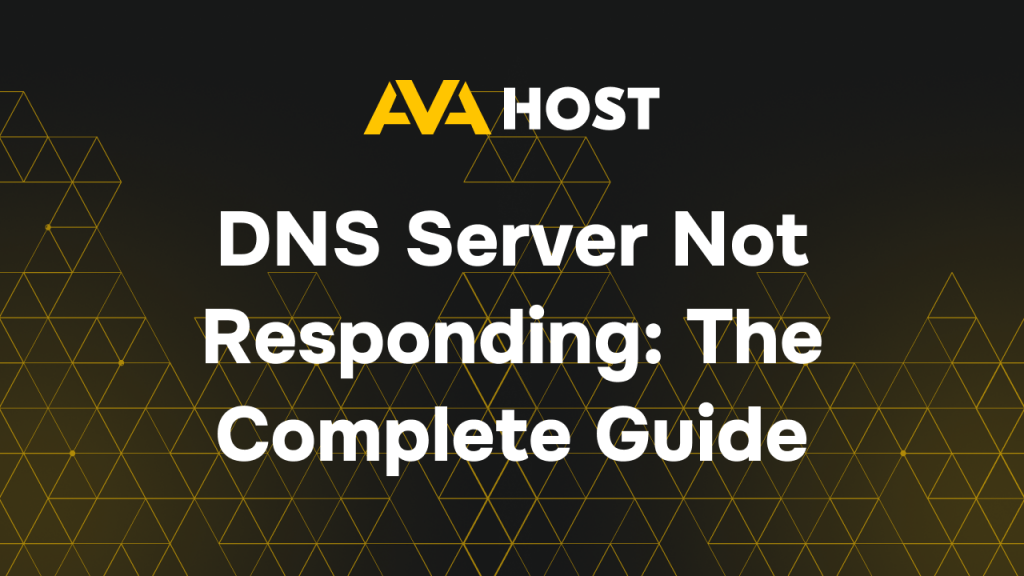F.A.Q

The “DNS server not responding” error is a common network issue that prevents users from accessing websites in the server environment. This guide will help you understand what causes this error and how to fix it effectively. At AvaHost, we understand how critical uninterrupted DNS resolution is to the functionality of websites, applications, and hosted […]

Secure Shell (SSH) is an essential tool for system administrators, developers, and anyone managing remote servers. With SSH remote access, you can securely connect to a remote machine, execute commands, transfer files, and perform administrative tasks. In this article, we’ll explore 10 common SSH commands that you should be using today. 1. Connecting to a […]

Optimizing PostgreSQL on AvaHost VPS: Best Practices for Performance and Security PostgreSQL is a powerful, open-source database system, and when hosted on AvaHost’s high-performance VPS with Dedicated Server, it can deliver exceptional speed and reliability. Optimizing PostgreSQL ensures faster queries, efficient resource use, and robust security, making it ideal for applications like e-commerce or analytics […]

In today’s fast-paced digital environment, ensuring that websites and applications are fast, reliable, and available globally is essential. One of the most efficient ways to achieve this is through load balancing. A Global Load Balancer (GLB) ensures that HTTP traffic is distributed across multiple servers, data centers, or cloud regions to maximize performance, reduce latency, […]

How to Horizontally Scale a PHP Application As web traffic surges, horizontally scaling your PHP application ensures it remains fast, reliable, and resilient. By distributing workloads across multiple servers, you can handle more users, reduce downtime, and boost performance. This guide simplifies horizontal scaling for PHP applications, offering key techniques, best practices, and practical examples […]

Implementing HTTPS: A Step-by-Step Guide Securing your website with HTTPS is essential for protecting user data, boosting SEO, and building trust. With AvaHost’s high-performance VPS and Dedicated Servers, implementing HTTPS is straightforward, leveraging tools like AutoSSL or Let’s Encrypt. This guide provides clear steps to set up HTTPS on your AvaHost server, ensuring a secure, […]

Transform your Debian system into a modern, user-friendly powerhouse by installing GNOME, a popular desktop environment known for its clean design and seamless functionality. Whether you’re a developer crafting applications, a sysadmin managing servers, or a casual user exploring Linux on ava.hosting’s reliable VPS or dedicated servers, GNOME offers a polished interface that boosts productivity. […]

How to Install OpenJDK on Ubuntu 22.04 OpenJDK is a powerful, open-source implementation of Java, widely used for developing and running robust applications. This concise guide simplifies the process of installing OpenJDK on Ubuntu 22.04, ensuring you have a reliable Java environment for development or deployment. We’ll also cover practical examples to help you get […]

Fixing the “Upgrade Ubuntu Install Updates” Error on AvaHost VPS The Upgrade Ubuntu Install Updates error can disrupt the process of keeping your Ubuntu system secure and optimized on AvaHost’s high-performance VPS. This error, often caused by broken packages, corrupt caches, or insufficient resources, prevents successful updates or upgrades. Leveraging AvaHost’s NVMe SSDs, LiteSpeed compatibility, and […]

Understanding and Protecting Against IP Address Tracking In the interconnected digital landscape of 2025, IP address tracking is a common practice used by websites, businesses, governments, and even cybercriminals to identify and locate devices online. Whether for analytics, security, or targeted advertising, tracking IP addresses can reveal significant details about users, raising both opportunities and […]

